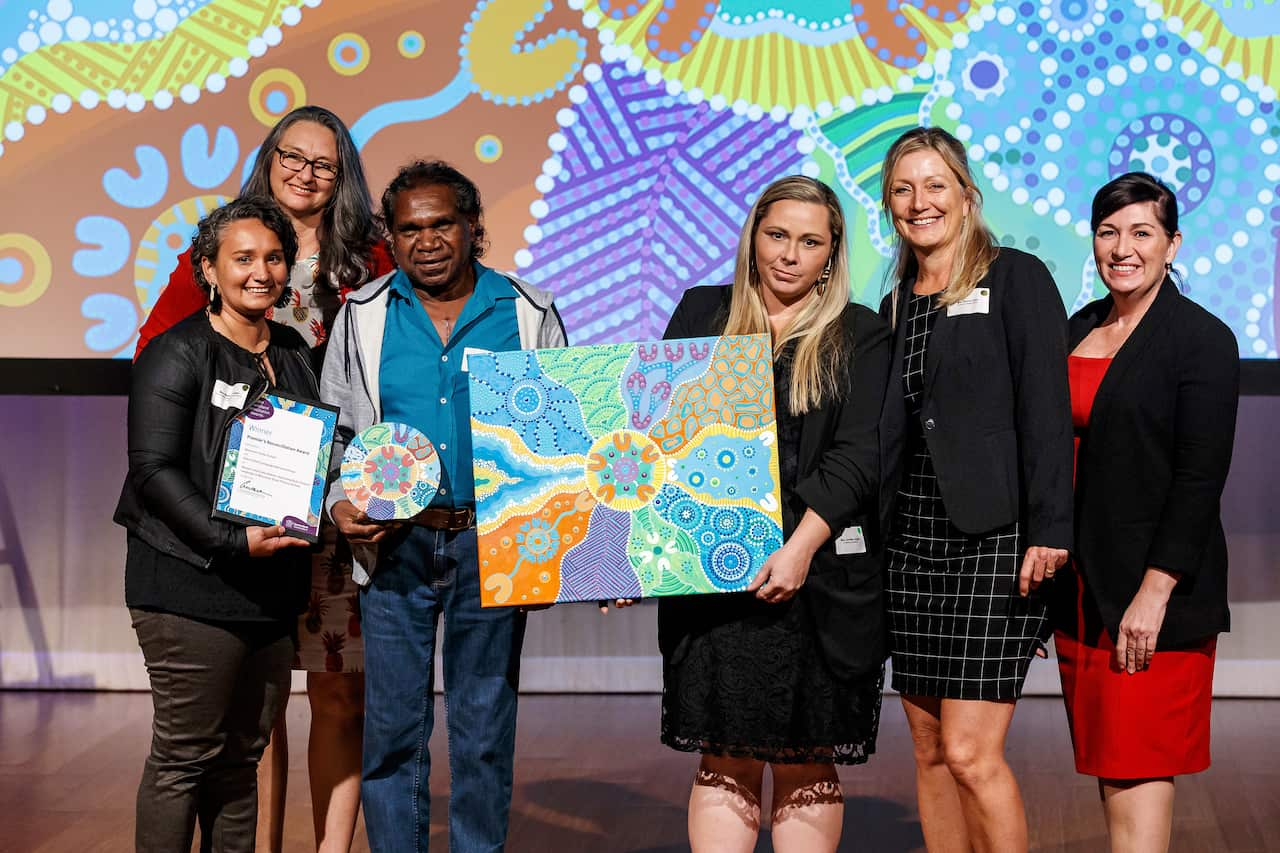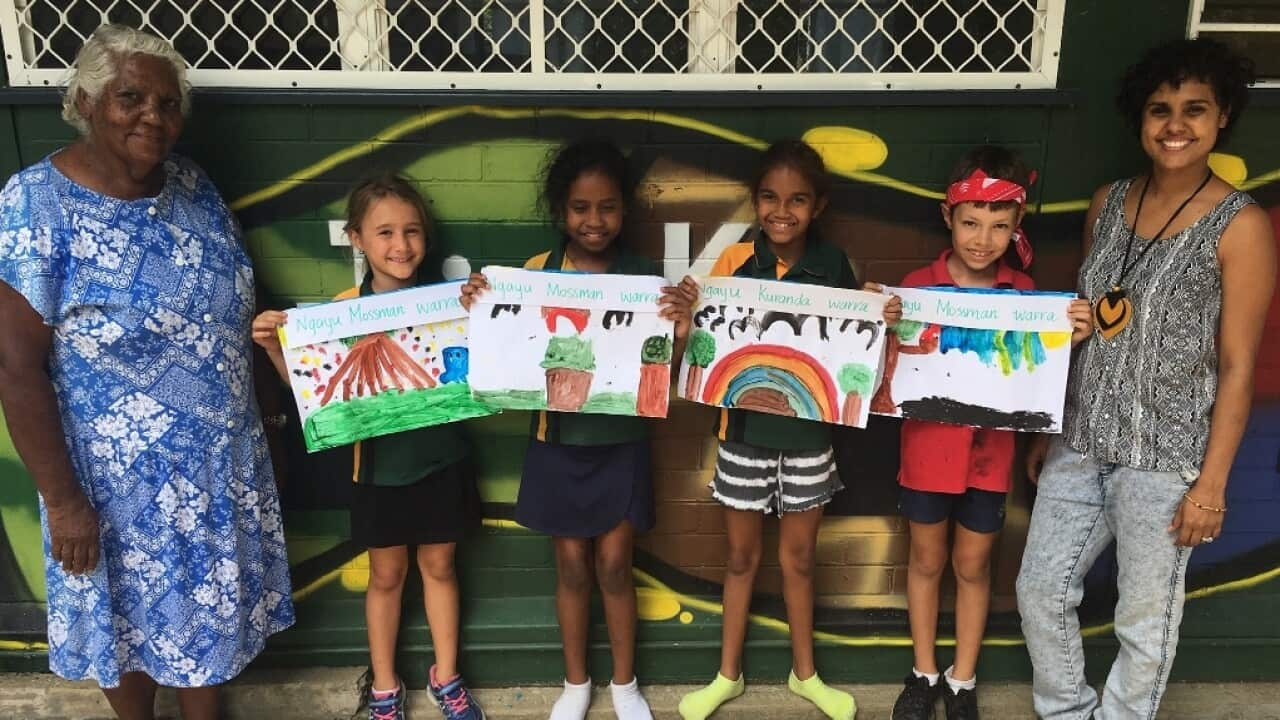An Indigenous language initiative at Mossman State School in Far North Queensland has taken out the top gong at the Queensland Reconciliation Awards this week.
Embedded in the school curriculum, the program sees children from prep to year four learning the local Kuku Yalanji language from a qualified Indigenous teacher.
Sharon Case, head of teaching and learning at the school, said it was having "incredible" results.
"It’s having a huge impact on our kids, our community, our school," she told NITV News.
“It’s about building the cultural identity of our kids... they need to have their language, their place and their people - so we’re about bringing that back and righting some of those wrongs of the past, in our small way.”
Students were recently surveyed about their response to the program.
“Learning my language and being able to speak my language makes my heart feel lighter," wrote an Indigenous girl in Year One. Merindi Schrieber, a member of the Kuku Yalanji advisory group which oversees the cultural elements of the program, says language is key to unlocking potential in First Nations students.
Merindi Schrieber, a member of the Kuku Yalanji advisory group which oversees the cultural elements of the program, says language is key to unlocking potential in First Nations students.

Some of the team behind the language program receive the Premier's Reconciliation Award from Queensland Environment Minister Leeanne Enoch. Source: Supplied
"Out of this more knowledge will start to evolve for our people," she said.
“If our people can get a hold of who they are as First Nations and understand their standing and their purpose in culture, we are able to heal from the inside out.
“Once we’ve got that sense of identity, and our pride sets in, we can accomplish things that we’ve never thought of."
Ms Case says there are also benefits for non-Indigenous students.
"They’re learning about cultural understanding and they’re learning so much about the culture of the land that their school is on," she said.
"They’re starting to understand other kids better, and they’re improving their perspective."
The program started last year following extensive consultation forums between the school and the local Indigenous community.
The two groups worked through initial community concerns, before signing a language agreement - a symbol that the initiative wasn't just a "tokenistic thing".
Ms Schrieber described the process as a "true step towards reconciliation".
"It’s been a beautiful journey being able to grow together as a community, in unity."


